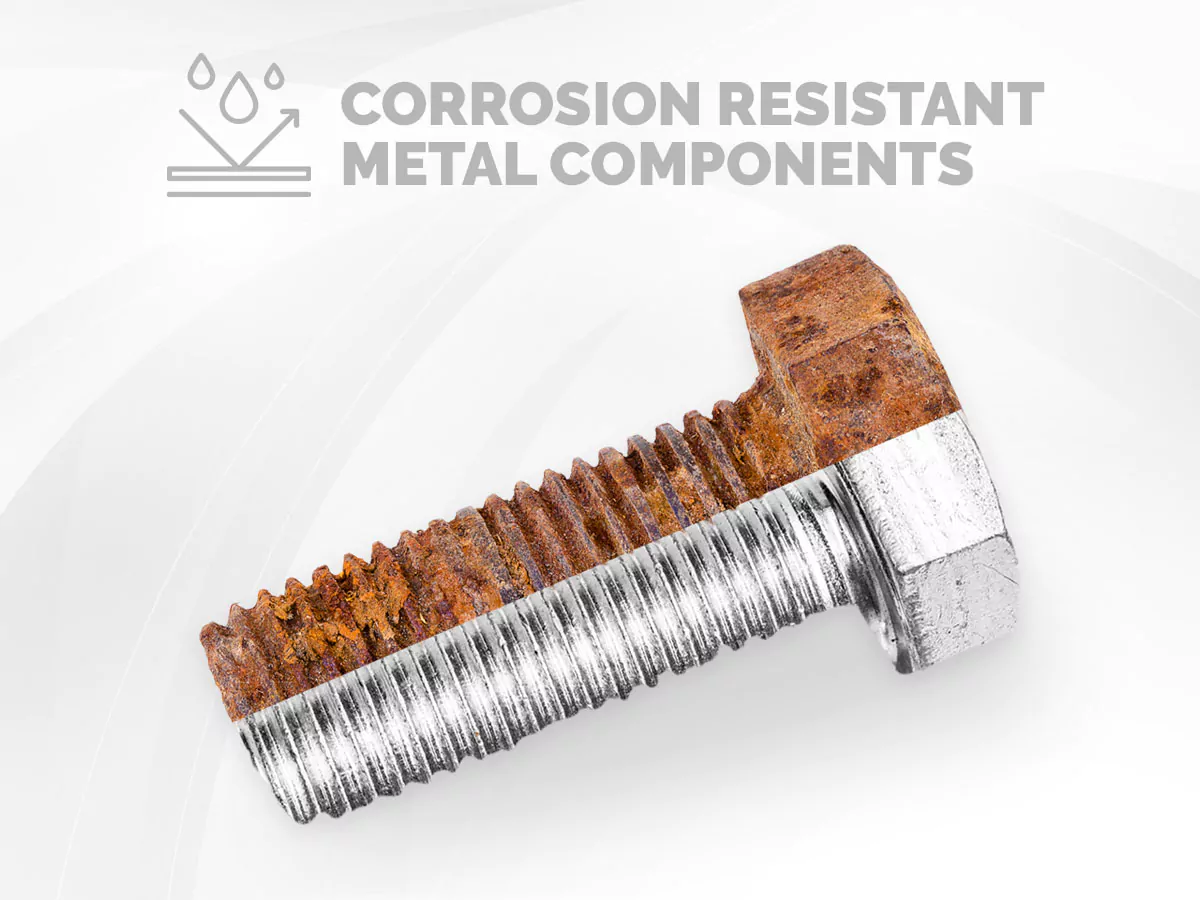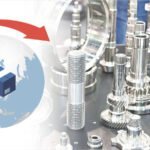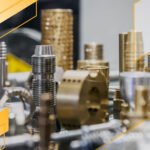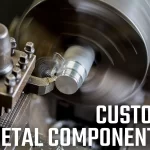Corrosion Resistant Metal Components: The causes of corrosion and prevention tips.

There is no metal that is completely corrosion-proof. It is possible to stop corrosion before it creates a problem by slowing, managing, or stopping it.
During the design process, engineers can consider corrosion control. In order to protect metal components from corrosion, manufacturers can apply corrosion barriers. Finally, people who use the component can take preventative measures to extend its lifespan.
Let’s first know about corrosion.
What is Corrosion?
When metals react with oxidizing agents in their environment, corrosion occurs. In the long run, this chemical reaction can cause the metal to degrade, tarnishing its appearance and compromising its structure.
It is important to note that each type of metal has different electrochemical properties. Depending on these properties, the part will be vulnerable to different types of corrosion. As an example, iron tools rust after being exposed to moisture for a long time, while copper roofs tarnish with time. No metal is immune to corrosion (depending on the environment), but some metals can withstand some corrosion better than others.
Metal components cannot be prevented from corrosion with a one-size-fits-all approach. In order to prevent and control corrosion in different metals, metal components manufacturers must use a variety of methods.
How does Corrosion happen?
If you want to keep your metal components free from corrosion, it is important to know and understand what exactly causes corrosion. With the knowledge of the causes of corrosion, you will be able to effectively prevent it from consuming your metal objects: from heavy machinery to little metal tools.
Metal corrodes when moisture, metal, and an electron acceptor, such as oxygen, are present. Iron is quickly oxidized by moisture when it comes into contact with it, resulting in iron oxide (rust’s chemical name). Although iron corrodes faster than most metals due to its high reactivity, all metals are susceptible to oxidation.
A small amount of corrosion can quickly become a big problem. Your business can lose thousands of dollars when it destroys the functionality and stability of machinery. It is essential to know how to prevent rust effectively to save money and avoid serious problems later on. Taking small precautions upfront can save you a lot of money, time, and frustration down the road.
Let’s explore several considerations that can help keep your beloved metal components from corroding:
How do protect metal components from Corroding?
- Metal Material: Selecting the right material for your metal components is very essential. Metals such as stainless steel are commonly used to prevent rust or to slow it down. Metals such as aluminium are corrosion-resistant, which makes them ideal for use in marine, urban and industrial environments.
- Oiling and Greasing: Rust can be prevented or slowed down by coating metal with oil, which prevents moisture from reaching the iron. The issue of an oily surface may be a problem for some tools or machines as well as a health and environmental concern.
- Barrier Coatings: Special rust preventative products dry with no residue and form a protective barrier over metal components and equipment. They can be used for products in use, shipping, storage, and more. It is important to paint metal to prevent moisture from reaching it in order to slow down rusting.
- Protective storage: Coatings can provide a level of protection against corrosion by acting as a physical barrier between metal parts and oxidizing elements in the environment. It is also possible to prevent corrosion of metal components by powder coating. By properly applying a powder coating, the surface can be sealed from the environment, preventing corrosion.
- Electric Protection: An electrical current is used to overpower corrosive current in a part, using an outside electrical current. Anodes used as sacrificial anodes are less complicated ways to prevent cathodic corrosion. Using a small, reactive metal, you attach it to the part you want to protect.
- Preventive Maintenance: It prevents your metal components and machinery from corroding in the first place. It takes a lot of time to maintain your home, and everyone seems to be short on time. However, maintenance and monitoring are essential to the success of these measures.
- Manufacturing Design: When you are going with the manufacture of custom metal components, the process and manufacturing parameters need to be considered for the selection of the right material; drainage geometry; Electrolysis of dissimilar metals; sealing crevices; corrosion allowance; and maintenance and inspection requirements.
- Chemical Inhibitors: Corrosion inhibitors reduce corrosion rates by slowing down the chemical reaction (corrosion). Generally, corrosion inhibitors are applied to clean surfaces and allowed to penetrate and dry.
- Corrosion management: To prevent corrosion and reduce its costs, a proactive corrosion management plan must be implemented to improve the design, operation, and maintenance of critical assets. Furthermore, these plans should be based on changes in how corrosion decisions are made within an organization.
- Environmental Control: The environment plays a significant role in the likelihood of corrosion. By keeping metal parts and components dry and clean when not in use, you extend their life. You may want to consider methods for controlling the level of oxygen, sulphur, and chloride in the environment if you plan to store them for long periods of time.
Keep your metal components corrosion-free by keeping them safe from the causes of corrosion mentioned above. Careful material selection mitigates the risk of corrosion. Dissimilar material combinations should be avoided when selecting metal for underwater and hazardous environmental applications. Always check the metal components manufacturer’s guidelines before doing so.
We at Teron Metal Components want your equipment to last as long as possible, and we have a wide selection of excellent metals to choose from, such as our mild steel, stainless steel, aluminium, tool steel, alloy steel, brass, bronze, copper, and more. We’ll be glad to help you find the right materials for whatever type of metal components you want to start.
For more information about our Metal Components and capabilities, please contact us or request a quote.



